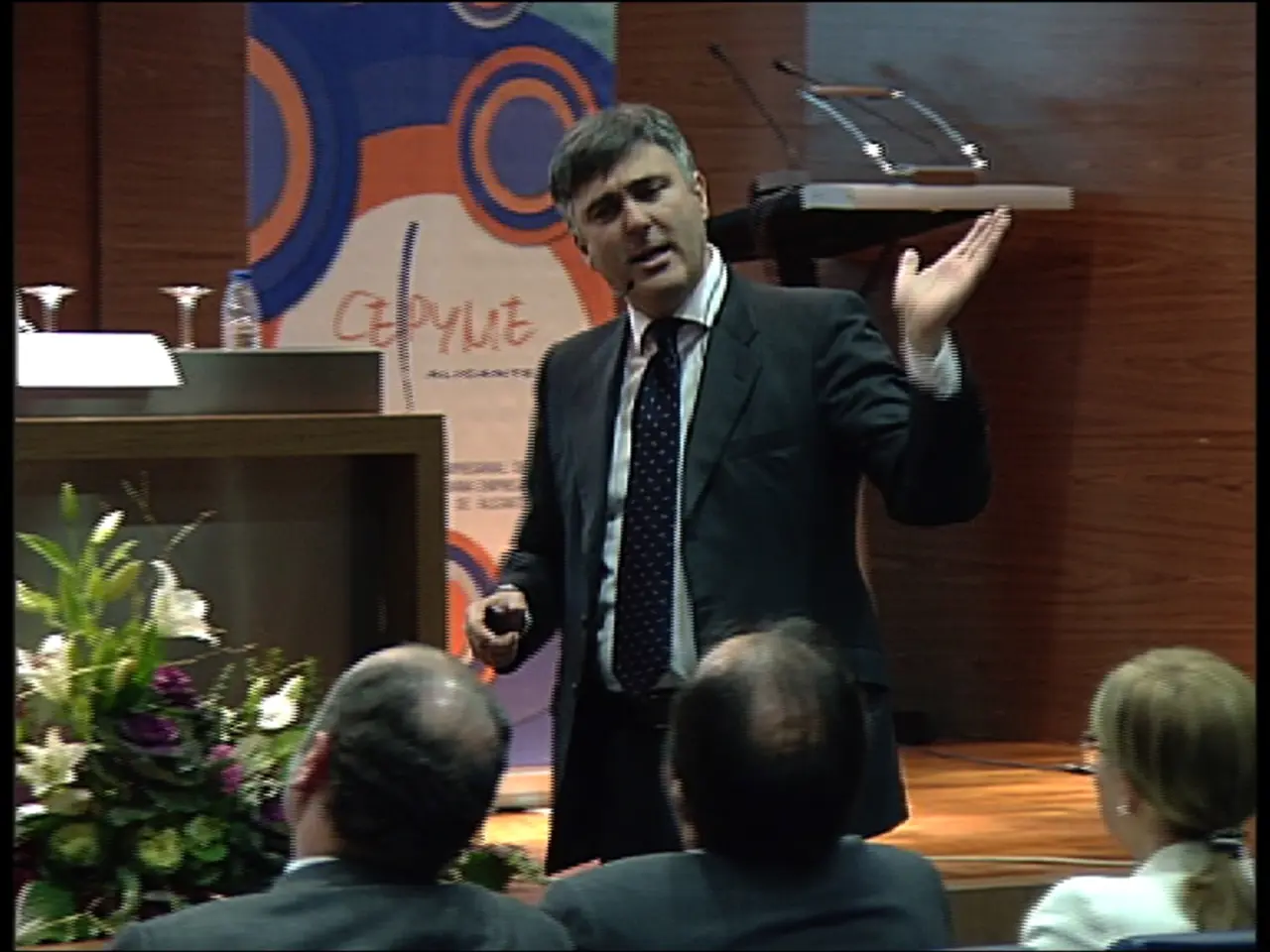Stormy autumn ahead with black and red rock formations featured: Merz
The ongoing conflict over the appointment of judges to Germany's Federal Constitutional Court has taken a toll on the stability of Chancellor Friedrich Merz's Black-Red coalition (CDU/CSU-SPD). The latest crisis erupted when the Bundestag postponed voting on three new constitutional judges, with the SPD's nominee, Frauke Brosius-Gersdorf, being a key figure[2][3][5].
The CDU/CSU bloc raised objections to Brosius-Gersdorf's candidacy, citing concerns about plagiarism and ideological differences, particularly on issues such as abortion rights and COVID-19 vaccine mandates[2][3][4]. This move has sparked anger within the SPD and the Greens, leading to public accusations that the conservatives are undermining the court's credibility for political purposes[2][3][4].
The delay in voting has exposed deep fissures within the coalition, with the SPD and Greens labelling the conservatives' behaviour as a "witch hunt" and political opportunism[3][5]. The controversy has embarrassed Chancellor Merz and raised questions about the coalition's ability to coordinate its parliamentary majority, especially on sensitive issues[3][4][5].
The appointment of Federal Constitutional Court judges requires a two-thirds majority in parliament, with coalition parties alternating the right to propose candidates. These disputes have threatened the usually cooperative process that underpins judicial appointments in Germany[1][2].
Brandenburg's Minister President Dietmar Woidke proposed restarting the entire judge appointment procedure and withdrawing all three candidates[1]. However, SPD faction leader Matthias Miersch stated that withdrawing Brosius-Gersdorf's candidacy is not an option[1]. Miersch particularly rejects Woidke's proposal to restart the procedure and withdraw all candidates[1].
Jens Spahn, faction leader of the Union, is facing criticism for inefficient moderation during the procedure, damaging trust in the coalition[1]. SPD MPs argue that the Union's rejection of Brosius-Gersdorf violates existing agreements[1]. They also accuse the Union of abusing the trust shown by the SPD[1].
Both sides in the conflict are "very high up on a tree," meaning they are unwilling to make concessions as it would mean losing face[1]. The current conflict dynamics are characterized by old agreements and the urgent search for new negotiation strategies[1]. Political veterans from the SPD suggest that conflicts like this must ultimately be resolved[1].
In addition to Ann-Katrin Kaufhold and Günter Spinner, Brosius-Gersdorf is one of three nominees for the Federal Constitutional Court[1]. The outcome of this conflict could have significant implications for the future of the Black-Red coalition and the balance of power in Germany's top court.
The conflict over the appointment of judges to Germany's Federal Constitutional Court highlights the intersection of policy-and-legislation with politics, as the ongoing deadlock has serious ramifications for the coalition's stability. The disagreement over Frauke Brosius-Gersdorf's candidacy, a key figure in the latest crisis, has sparked accusations of political opportunism, undermining the court's credibility and straining relations within the Black-Red coalition. This controversy, embedded in the general news of the country, raises questions about the coalition's ability to cooperate, especially on sensitive issues, and the future balance of power in Germany's top court.








